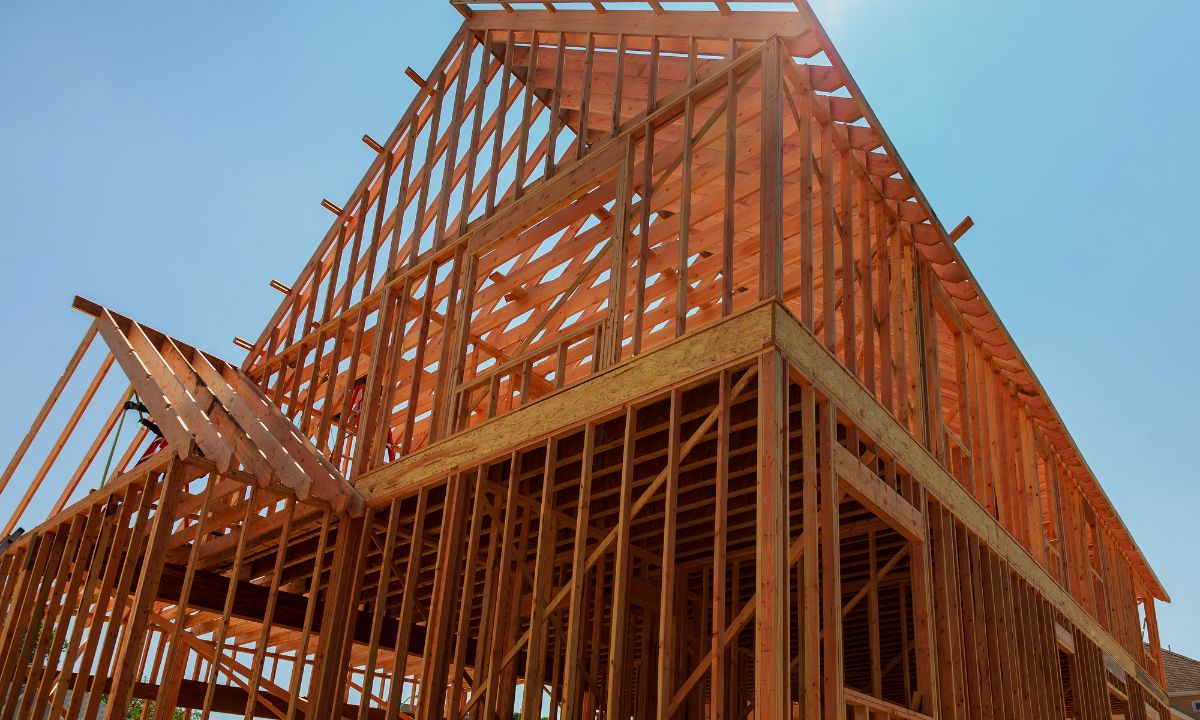
With the release of the latest CPI and PPI data, inflation has increased month-to-month for the first time since March, marking the first rise in over seven months. The Federal Reserve has reiterated its goal of reducing inflation to a 2% target within a year. While this development doesn’t necessarily indicate an imminent interest rate hike, it suggests that current rates may remain unchanged for an extended period. Earlier optimism about a potential rate cut by the end of the year has significantly diminished in light of recent inflation figures and economic data. However, Retail Sales data presents a more positive outlook, showing continued economic growth ahead of the holiday shopping season.
Consumer Price Index
The consumer price index climbed 0.2% for the fourth month in a row, the government said Wednesday, matching the Wall Street forecast. The yearly rate of inflation crept up to 2.6% from 2.4%, marking the first upturn in seven months.
Producer Price Index
The PPI data met expectations overall but revealed that U.S. wholesale prices rose slightly faster in October. This suggests the Federal Reserve’s efforts to bring inflation back to low pre-pandemic levels may take longer than anticipated. Federal Reserve officials have described the recent uptick in inflation as a ‘bump,’ which could hinder the central bank from reducing high interest rates as quickly as Wall Street had hoped just a few months ago.
Retail Sales
Sales at retailers rose solidly in October and suggested the economy still has plenty of momentum heading into the holiday shopping season. Sales increased 0.4% last month, the government said Friday, and receipts in September were twice as strong as previously reported.
Primary Mortgage Market Survey Index
• 15-Yr FRM rates saw a decrease of -0.01% with the current rate at 5.99%
• 30-Yr FRM rates saw a decrease of -0.01% with the current rate at 6.78%
MND Rate Index
• 30-Yr FHA rates saw a 0.09% increase for this week. Current rates at 6.39%
• 30-Yr VA rates saw a 0.07% increase for this week. Current rates at 6.39%
Jobless Claims
Initial Claims were reported to be 217,000 compared to the expected claims of 220,000. The prior week landed at 221,000.
What’s Ahead
Preliminary S&P Global US Manufacturing PMI will be early on the release schedule marking the first large end-of-the-year preliminary report. Following that immediately is the University of Michigan Consumer Sentiment Report.
 Purchasing a home is a major life decision, and for many homebuyers, the ideal property may not always come fully finished. An unfinished home offers a unique opportunity to create a space that suits your family’s needs while potentially saving money upfront. Whether you’re looking to save on your initial purchase or enjoy the flexibility of customizing your home, buying an unfinished house could be a great option.
Purchasing a home is a major life decision, and for many homebuyers, the ideal property may not always come fully finished. An unfinished home offers a unique opportunity to create a space that suits your family’s needs while potentially saving money upfront. Whether you’re looking to save on your initial purchase or enjoy the flexibility of customizing your home, buying an unfinished house could be a great option. Buying a home is one of the most significant investments you’ll make in your lifetime. But it’s not just about purchasing the property itself—it’s also about protecting it. Homeowners insurance is a crucial part of homeownership, offering financial protection against damage or loss caused by unexpected events like accidents, natural disasters, or theft.
Buying a home is one of the most significant investments you’ll make in your lifetime. But it’s not just about purchasing the property itself—it’s also about protecting it. Homeowners insurance is a crucial part of homeownership, offering financial protection against damage or loss caused by unexpected events like accidents, natural disasters, or theft. When it comes to homeownership, one of the most important aspects of the process is ensuring you have the proper legal documentation that proves your ownership. This documentation usually comes in the form of a title or a deed. These documents not only provide proof of ownership but also serve as a way to protect your rights to the property. Whether you’re buying your first home or adding to your real estate portfolio, understanding the difference between titles and deeds is essential to securing your investment.
When it comes to homeownership, one of the most important aspects of the process is ensuring you have the proper legal documentation that proves your ownership. This documentation usually comes in the form of a title or a deed. These documents not only provide proof of ownership but also serve as a way to protect your rights to the property. Whether you’re buying your first home or adding to your real estate portfolio, understanding the difference between titles and deeds is essential to securing your investment. Big inflation reports for the coming week with both CPI and PPI on the schedule. We should expect the data to remain within expectations given the latest reports from both the PCE Index and GDP estimates. The Federal Reserve has still remained hawkish and the last rate decision the expectation is the current rates should maintain. However with the inflation being very close to the Federal Reserve’s target inflation rate and the expected “soft landing” on the horizon. The outlook is optimistic for another round of rate cuts in future.
Big inflation reports for the coming week with both CPI and PPI on the schedule. We should expect the data to remain within expectations given the latest reports from both the PCE Index and GDP estimates. The Federal Reserve has still remained hawkish and the last rate decision the expectation is the current rates should maintain. However with the inflation being very close to the Federal Reserve’s target inflation rate and the expected “soft landing” on the horizon. The outlook is optimistic for another round of rate cuts in future. Today, on Veterans Day, we pause to honor and express our deep appreciation for the brave men and women who have served and protected our nation. Your courage, sacrifice, and dedication embody the very best of who we are as a country, and we are forever grateful for your service.
Today, on Veterans Day, we pause to honor and express our deep appreciation for the brave men and women who have served and protected our nation. Your courage, sacrifice, and dedication embody the very best of who we are as a country, and we are forever grateful for your service. When buying a home, it’s easy to focus solely on the property itself—square footage, curb appeal, layout, and finishes all tend to grab our attention. But what happens outside the property can be just as impactful, especially when new developments are underway nearby. Whether it’s the construction of a new shopping center, school, or transit line, nearby developments can significantly influence property values, sometimes raising them and, in certain situations, leading to complexities. Here’s how developments around your property might shape its value and tips on researching these projects before making a decision.
When buying a home, it’s easy to focus solely on the property itself—square footage, curb appeal, layout, and finishes all tend to grab our attention. But what happens outside the property can be just as impactful, especially when new developments are underway nearby. Whether it’s the construction of a new shopping center, school, or transit line, nearby developments can significantly influence property values, sometimes raising them and, in certain situations, leading to complexities. Here’s how developments around your property might shape its value and tips on researching these projects before making a decision. When purchasing a home, many elements shape the decision-making process, and for countless buyers, school districts are at the top of the list. Quality education access not only influences family decisions but also has a profound impact on property values. Whether you’re a family prioritizing educational opportunities, an investor focused on appreciating assets, or a homeowner thinking about resale value, understanding how school districts affect home values is crucial. This guide explores the connections between school districts and property values, delving into buyer priorities, market demand, community stability, investment potential, and resale value.
When purchasing a home, many elements shape the decision-making process, and for countless buyers, school districts are at the top of the list. Quality education access not only influences family decisions but also has a profound impact on property values. Whether you’re a family prioritizing educational opportunities, an investor focused on appreciating assets, or a homeowner thinking about resale value, understanding how school districts affect home values is crucial. This guide explores the connections between school districts and property values, delving into buyer priorities, market demand, community stability, investment potential, and resale value. When preparing to sell, many homeowners consider renovations to boost their property’s appeal and value. While updating a home can make it more attractive to buyers, it’s crucial to weigh the potential benefits against the costs. Here’s a look at the pros and cons of renovating before listing to help you make an informed decision.
When preparing to sell, many homeowners consider renovations to boost their property’s appeal and value. While updating a home can make it more attractive to buyers, it’s crucial to weigh the potential benefits against the costs. Here’s a look at the pros and cons of renovating before listing to help you make an informed decision. The home-buying journey is thrilling but can take longer than expected, especially if you need to restart after a purchase falls through. So, how long should you plan for? Generally, you can expect the process to take around four months, divided into three main phases: the search, the offer, and financing.
The home-buying journey is thrilling but can take longer than expected, especially if you need to restart after a purchase falls through. So, how long should you plan for? Generally, you can expect the process to take around four months, divided into three main phases: the search, the offer, and financing.